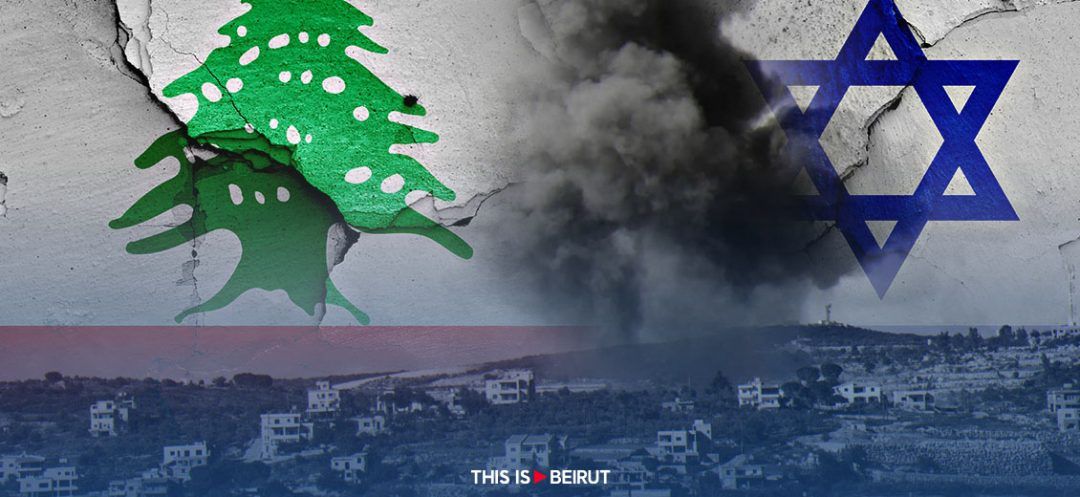- Home
- War in the Middle East
- Israeli Strikes: What Message to Lebanon?

In a conflict whose true nature continues to be ignored, material damage and casualties among fighters and civilians are multiplying on both sides. Wednesday morning, and in the recent context of Israeli strikes expanding into Lebanon, the city of Sour was, for the first time since the beginning of the war between Israel and Hamas, targeted in an attack carried out by the Israeli state. A drone targeted a car, killing a Hamas official. A few days earlier, the Baalbeck region was affected by the escalation of violence. Have the "red lines" mentioned by the Hezbollah Secretary-General in his previous speeches been crossed? Decision-makers in this context are numerous and not always on the same page.
In Israel, there is the figure of a Prime Minister, Benjamin Netanyahu, who wants to fulfill his promise to "demilitarize Gaza," "deradicalize Palestinian society" and "continue until the end." In Lebanon, there is a militia, Hezbollah, which decides, despite the opposition of the vast majority of Lebanese, to open a front from Lebanese territory but claims to continue to "respect" the rules of engagement while diversifying fronts. Internationally and on a large scale, there are the United States on one side and Iran on the other. Ideologically opposed, the two nations converge when it comes to acting to prevent a widespread conflagration. Will Netanyahu comply with American will? Will Hezbollah commit the "mistake of its life," as Netanyahu put it?
"The current Israeli strategic vision consists, in view of American opposition to the extension of the conflict, of dragging the pro-Iranian group into a war, pushing it to make the mistake mentioned above," according to military sources.
The reason for this is simple according to the same source: on one hand, "The Israeli Prime Minister wants to fight for his political survival and escape justice." His statement last December is recalled in this regard, "Nothing will stop us. We will go all the way, to victory, nothing less." The question is what victory would mean for Netanyahu. On the other hand, Tel Aviv "seeks to play its military cards to impose its conditions in the ongoing negotiations to restore peace to the Middle East."
However, Hezbollah continues, so far, to pursue a strategy in line with Iranian instructions: to continue retaliations while avoiding the war spreading to Lebanon, particularly to Beirut and its suburbs. To what extent will Hezbollah be able to hold its breath when it is "indubitable," according to the aforementioned source, that "Israeli strikes may multiply, particularly in the Bekaa, targeting Hezbollah positions and posts"?
While American experts and intelligence services affirm that this escalation of tensions remains controlled and that neither Iran nor Hezbollah wants to provoke an escalation of the conflict in Lebanon (which would go against their political interests in the country), one wonders if the conditions set by Israel will be applied. These conditions, let us recall, mainly consist of pushing Hezbollah’s fighters north of the line represented by the Litani River in Lebanon and in the implementation of UN Security Council Resolution 1701 adopted in 2006, in the aftermath of the war between Hezbollah and Israel.
In Israel, there is the figure of a Prime Minister, Benjamin Netanyahu, who wants to fulfill his promise to "demilitarize Gaza," "deradicalize Palestinian society" and "continue until the end." In Lebanon, there is a militia, Hezbollah, which decides, despite the opposition of the vast majority of Lebanese, to open a front from Lebanese territory but claims to continue to "respect" the rules of engagement while diversifying fronts. Internationally and on a large scale, there are the United States on one side and Iran on the other. Ideologically opposed, the two nations converge when it comes to acting to prevent a widespread conflagration. Will Netanyahu comply with American will? Will Hezbollah commit the "mistake of its life," as Netanyahu put it?
"The current Israeli strategic vision consists, in view of American opposition to the extension of the conflict, of dragging the pro-Iranian group into a war, pushing it to make the mistake mentioned above," according to military sources.
The reason for this is simple according to the same source: on one hand, "The Israeli Prime Minister wants to fight for his political survival and escape justice." His statement last December is recalled in this regard, "Nothing will stop us. We will go all the way, to victory, nothing less." The question is what victory would mean for Netanyahu. On the other hand, Tel Aviv "seeks to play its military cards to impose its conditions in the ongoing negotiations to restore peace to the Middle East."
However, Hezbollah continues, so far, to pursue a strategy in line with Iranian instructions: to continue retaliations while avoiding the war spreading to Lebanon, particularly to Beirut and its suburbs. To what extent will Hezbollah be able to hold its breath when it is "indubitable," according to the aforementioned source, that "Israeli strikes may multiply, particularly in the Bekaa, targeting Hezbollah positions and posts"?
While American experts and intelligence services affirm that this escalation of tensions remains controlled and that neither Iran nor Hezbollah wants to provoke an escalation of the conflict in Lebanon (which would go against their political interests in the country), one wonders if the conditions set by Israel will be applied. These conditions, let us recall, mainly consist of pushing Hezbollah’s fighters north of the line represented by the Litani River in Lebanon and in the implementation of UN Security Council Resolution 1701 adopted in 2006, in the aftermath of the war between Hezbollah and Israel.
Read more



Comments